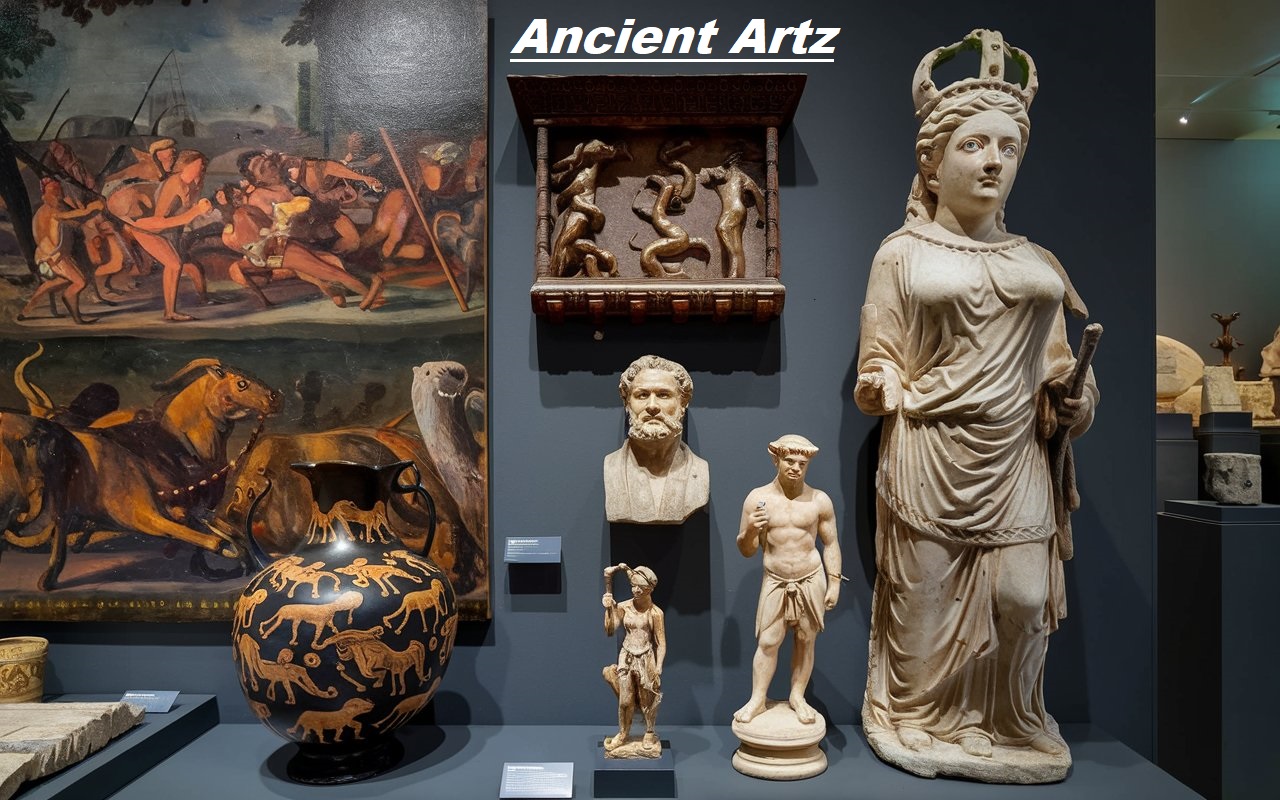Ferdinand Berthier stands as one of the most remarkable figures in the history of deaf education and advocacy. Born at a time when deaf individuals were often marginalized, Berthier not only overcame these barriers but also became a leader and an advocate for his community. His contributions laid the groundwork for modern deaf education and significantly improved the quality of life for hearing-impaired individuals across Europe.
Table of Contents
ToggleIntroduction
The story of Ferdinand Berthier is a tale of resilience, leadership, and intellectual brilliance. Born in the early 19th century, a time when the rights and needs of the deaf were largely ignored, Berthier’s legacy is marked by his efforts to reform education for the deaf and his tireless advocacy for deaf people’s rights. Through his dedication and ingenuity, he transformed how society viewed deafness and paved the way for future generations to access better education and opportunities.
But what made Ferdinand Berthier so impactful? What were the obstacles he faced, and how did he overcome them to become one of the most important figures in deaf history? Let’s dive into his life and legacy.
Ferdinand Berthier: A Deaf Icon Ahead of His Time
Born in 1803 in Louhans, France, Ferdinand Berthier was deaf from birth. At the time, deaf individuals were often seen as “disabled” and incapable of contributing to society. However, Berthier shattered those misconceptions. He enrolled at the National Institute for Deaf-Mutes in Paris, where he quickly stood out for his intelligence and enthusiasm.
Berthier’s time at the institute exposed him to the teaching of Abbé de l’Épée, who was a pioneer in the education of the deaf, and it became a life-changing experience. He became a teacher at the institute himself, proving that being deaf did not limit one’s ability to educate others.
Championing Deaf Education
Ferdinand Berthier’s most profound contribution was in the field of deaf education. He believed that the deaf should have access to education in their own language—sign language. This idea was revolutionary at the time when oralism (forcing deaf students to learn spoken language and lip-reading) was considered the only “proper” method of educating deaf individuals. Berthier championed the use of French Sign Language (LSF) in educational settings, emphasizing that it was essential for deaf students to express themselves naturally in a visual language.
His work influenced the modern understanding of the importance of sign language in deaf education. Today, sign languages are recognized worldwide as legitimate, complex languages capable of conveying abstract and nuanced thoughts. Without Berthier’s early advocacy, this progress might not have been possible.
The First Deaf Person to Receive the Legion of Honour
In 1849, Ferdinand Berthier became the first deaf person to be awarded the prestigious Legion of Honour in France, one of the country’s highest distinctions. This award recognized his contributions to deaf education and advocacy. For a deaf individual to receive such an honor in the mid-19th century was an unprecedented achievement, signifying the respect Berthier had earned in both the hearing and deaf communities.
This recognition wasn’t just a personal victory for Berthier—it was a victory for the entire deaf community, helping to elevate their status and break down social barriers.
Fighting for Deaf Rights
Berthier didn’t stop at education. He was a tireless advocate for deaf rights. In an era when disabled individuals were often treated as second-class citizens, Berthier fought for equal treatment and opportunities for the deaf. He organized the first-ever Congress for Deaf-Mutes in Paris in 1834, bringing together deaf individuals from across Europe to discuss their rights, issues, and the future of deaf education.
This congress was revolutionary. It gave the deaf community a platform to voice their concerns and aspirations in a public forum, where they could advocate for themselves rather than relying on hearing individuals to speak on their behalf. Berthier was at the heart of this movement, and his efforts directly contributed to the empowerment of deaf individuals.
The Importance of Sign Language in Society
One of Ferdinand Berthier’s most lasting legacies is his unwavering support for the recognition of sign language. During the 19th century, oralism was the dominant philosophy in deaf education, which prioritized teaching deaf individuals to speak and lip-read over using sign language. Berthier understood that forcing deaf individuals to speak a language they could not hear was not only ineffective but harmful to their intellectual and emotional development.
By promoting sign language, Berthier laid the foundation for future advances in deaf education. His work eventually influenced the global deaf community, and today sign languages are widely accepted as the natural and preferred mode of communication for deaf people.
Ferdinand Berthier’s Role in Deaf Culture
Not only did Ferdinand Berthier contribute to deaf education, but he also played a pivotal role in shaping deaf culture. Berthier understood that deafness was not a disability but a unique way of experiencing the world. He celebrated the distinct linguistic and cultural identity of the deaf community, long before such ideas gained widespread acceptance.
Berthier’s belief in the importance of a shared deaf identity helped foster a sense of unity among deaf individuals. Through his advocacy, teaching, and organizational efforts, Berthier was instrumental in the creation of a thriving deaf culture that continues to grow and flourish today.
The Lasting Impact of Ferdinand Berthier on Modern Deaf Education
Ferdinand Berthier’s work holds immense significance. His advocacy for using sign language in deaf education paved the way for future reforms in how educators teach deaf individuals. His influence extended beyond France, with his ideas spreading across Europe and eventually to other parts of the world. Today, deaf education programs around the globe incorporate sign languages, recognizing them as essential for the cognitive and emotional development of deaf students.
Berthier’s legacy is also evident in the increasing recognition of the linguistic rights of the deaf. Many countries now recognize their national sign languages as official languages, allowing the deaf community to participate fully in society. This progress is, in many ways, the result of Berthier’s early efforts to champion sign language and the rights of deaf individuals.
Ferdinand Berthier’s Philosophy on Deaf Empowerment
At the core of Ferdinand Berthier’s philosophy was the idea of deaf empowerment. He believed that deaf individuals should be allowed to chart their own course in life, free from the paternalism of hearing society. By promoting sign language, encouraging deaf leadership, and advocating for equal rights, Berthier helped create a framework for the empowerment of future generations of deaf individuals.
In many ways, Berthier’s work can be seen as a precursor to the modern disability rights movement. His insistence on the dignity and potential of deaf individuals resonates with today’s broader discussions on inclusion, accessibility, and equality for all disabled people.
Ferdinand Berthier: An Inspiration for Deaf Leaders Worldwide
Ferdinand Berthier’s life serves as an inspiration for deaf leaders and advocates around the world. His determination to challenge societal norms and his ability to build bridges between the deaf and hearing worlds. Qualities that continue to inspire those working in the field of deaf education and advocacy today.
Modern deaf leaders often cite Berthier as a trailblazer who paved the way for the deaf community to stand tall and proud. His legacy lives on not just in the institutions he helped create, but also in the hearts and minds of those. Who continue to fight for deaf rights and recognition.
Ferdinand Berthier: A Trailblazer for Change
In looking back at Ferdinand Berthier’s life, it becomes clear that he was a trailblazer who was far ahead of his time. His belief in the power of sign language, his advocacy for deaf right. His efforts to foster a sense of community among deaf individuals have all had a lasting impact on the world.
Berthier’s legacy shows what determined individuals can achieve when they challenge the status quo and fight for what is right. The deaf community and society at large will always remember his contributions as monumental steps toward equality and recognition.
Conclusion
Ferdinand Berthier’s life and legacy offer a powerful testament to the impact one individual. Can have in transforming societal attitudes and advocating for the rights of marginalized communities. His pioneering work in deaf education, particularly his unwavering support for sign language. Broke new ground and challenged the oppressive norms of his time. Berthier’s vision of empowering the deaf community, celebrating their unique culture. Providing them with the tools to thrive still resonates today.
His legacy lives on in modern deaf education. Where sign languages are now recognized as essential for effective learning and communication. Berthier not only shaped the future of deaf education but also laid the groundwork for the broader. Disability rights movement. Emphasizing that disability does not define a person’s potential or worth.
Today, Ferdinand Berthier remains an inspiration to deaf leaders, educators, and advocates worldwide. His work continues to serve as a reminder of the importance of inclusion, equality. The recognition of diverse modes of communication. By championing the rights of the deaf, Berthier transformed not only the lives of his contemporaries. But also those of countless future generations.
FAQs
What was Ferdinand Berthier known for?
Ferdinand Berthier was a pioneering advocate for deaf education and rights. Known for his promotion of sign language and organizing the first deaf congress.
How did Ferdinand Berthier contribute to deaf education?
He advocated for the use of sign language in education, challenging the dominant oralism approach. Improving access to education for the deaf.
What was the significance of the Congress for Deaf-Mutes?
This congress, organized by Berthier, gave deaf people a platform to advocate for their rights. Discuss the future of deaf education and empowerment.
What role did Ferdinand Berthier play in shaping deaf culture?
He championed the unique linguistic and cultural identity of the deaf, helping to foster a sense of unity. Pride within the deaf community.
How is Ferdinand Berthier’s legacy relevant today?
Berthier’s advocacy for sign language and deaf rights laid the foundation for modern deaf education. The global recognition of sign languages.
ALSO VISIT: the //vital-mag.net blog









